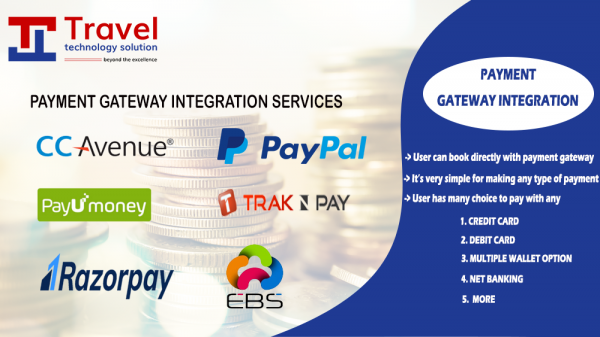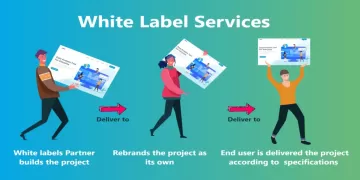
THIRD PARTY TRAVEL API INTEGRATION SERVICE
Third-Party
Travel API Integration System: Enhancing Travel Technology Solutions
In the ever-evolving landscape of the travel industry, businesses
often rely on third-party APIs (Application Programming Interfaces) to access
and integrate valuable travel-related data and services into their own systems.
A Third-Party Travel API Integration System is a software solution that
facilitates the seamless integration of these APIs into a travel company's
technology infrastructure. By leveraging this integration system, businesses
can enhance their travel technology solutions, provide comprehensive services
to their customers, and streamline their operations. In this article, we will
explore the benefits and functionalities of a Third-Party Travel API
Integration System.
What is a
Third-Party Travel API Integration System?
A Third-Party Travel API Integration System acts as a bridge
between a travel company's existing technology infrastructure and various
external APIs provided by third-party travel service providers. These APIs can
include flight booking systems, hotel reservation systems, car rental services,
tour operators, and other travel-related services. The integration system
enables seamless communication and data exchange between the travel company's
system and the external APIs, allowing businesses to offer a wide range of
travel services to their customers.
Key Benefits
and Functionalities:
1. Expanded
Inventory and Service Offerings: By integrating multiple third-party
APIs into their system, travel businesses can access a vast inventory of flights,
hotels, car rentals, activities, and other travel services. This integration
expands the range of offerings available to customers, providing them with more
options and ensuring a comprehensive travel experience.
2. Real-Time
Availability and Pricing: Third-Party Travel API Integration Systems
enable businesses to retrieve real-time availability and pricing information
from external service providers. This ensures that customers receive up-to-date
and accurate data when searching and booking travel services. Real-time
information allows businesses to provide instant confirmations and avoid
potential booking conflicts.
3.
Streamlined Booking and Reservation Management: With API
integration, travel companies can automate the booking and reservation process
by directly connecting with third-party service providers. This eliminates the
need for manual data entry and reduces the risk of errors. By streamlining the
booking and reservation management process, businesses can enhance operational
efficiency and improve customer satisfaction.
4. Dynamic
Packaging: A Third-Party Travel API Integration System enables businesses
to create dynamic travel packages by combining various travel services from
different providers. For example, a travel company can offer a package that
includes flights, accommodations, and local activities sourced from different
APIs. Dynamic packaging enhances customization options for customers and
facilitates cross-selling and upselling opportunities for businesses.
5. Seamless
Payment Processing: Integration systems can provide secure and
seamless payment processing capabilities by connecting with payment gateways.
This allows customers to make payments directly within the travel company's
system, eliminating the need for redirection to external platforms. Seamless payment
processing enhances the overall booking experience and reduces payment-related
friction.
6. Data
Synchronization and Management: Third-Party Travel API Integration
Systems ensure data synchronization between the travel company's system and
external APIs. This includes retrieving and updating information such as
availability, prices, descriptions, and images. By maintaining accurate and
consistent data across multiple platforms, businesses can avoid discrepancies
and provide reliable information to customers.
7.
Customization and Branding: Integration systems often allow businesses
to customize the user interface and branding of the travel booking platform.
This ensures a consistent brand experience for customers and helps businesses
differentiate themselves in a competitive market.
8.
Performance Monitoring and Reporting: API integration systems provide
monitoring and reporting functionalities, allowing businesses to track the
performance of integrated APIs. This includes monitoring API response times,
error rates, and other metrics. Performance monitoring helps identify any
issues or bottlenecks, enabling timely resolution and optimization of the
integration system.
There are
several popular third-party travel APIs available in the market. Here are some
well-known names:
1. Amadeus
Travel API: Amadeus offers a comprehensive suite of APIs for flight booking,
hotel reservation, car rental, travel insurance, and more. Their APIs provide
access to a vast inventory of travel services and enable seamless integration
into travel technology solutions.
2. Sabre
Travel API: Sabre offers a range of APIs for flight booking, hotel
reservation, car rental, and other travel services. Their APIs provide
real-time data, including availability, pricing, and itinerary management,
allowing businesses to offer comprehensive travel solutions.
3. Expedia
Partner Solutions API: Expedia Partner Solutions offers a variety
of APIs for hotel bookings, activities, car rentals, and more. Their APIs
provide access to Expedia's extensive inventory of travel services, enabling
businesses to offer a wide range of options to their customers.
4.
Travelport API: Travelport offers a suite of APIs for flight booking, hotel
reservation, car rental, and other travel services. Their APIs provide access
to a global distribution system (GDS), offering a wide range of content and
services from various travel providers.
5.
Skyscanner API: Skyscanner offers an API that provides access to flight, hotel,
and car rental data. Their API allows businesses to search for the best travel
deals, retrieve pricing information, and facilitate bookings through their
platform.
6.
Booking.com API: Booking.com offers an API that enables businesses to access
their extensive inventory of hotel accommodations. Their API allows businesses
to search for available rooms, retrieve pricing information, and make
reservations directly through their system.
These are just a few examples of third-party travel APIs available
in the market. Each API has its own set of features, documentation, and
integration requirements. Businesses can choose the API that best suits their
specific needs and integrate it into their travel technology solutions to
enhance their offerings and streamline their operations.

.jpeg)




















